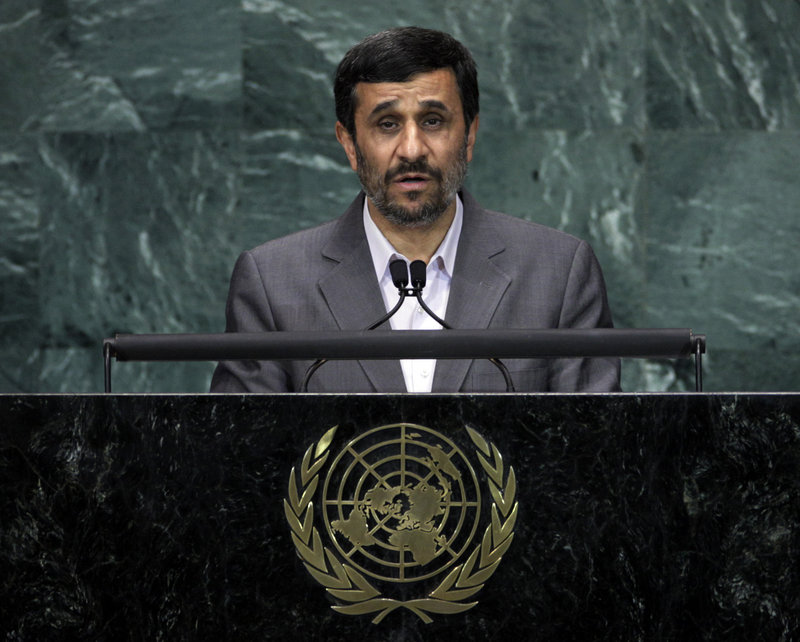UNITED NATIONS — Iran’s president on Tuesday predicted the defeat of capitalism and blamed global big business for the suffering of millions, but Germany’s chancellor said market economies were key to lifting the world’s least developed countries out of poverty.
The clash of visions at the U.N. anti-poverty summit drew a line under the stark differences on easing the misery of the 1 billion people living on less than $1.25 a day.
More than 140 presidents, prime ministers and kings are attending the three-day summit that started Monday to assess and spur on achievement of U.N. targets set by world leaders in 2000. The plan called for an intensive global campaign to ease poverty, disease and inequalities between rich and poor by 2015.
Iranian President Mahmoud Ahmadinejad, however, never mentioned the Millennium Development Goals in his speech to the 192-member General Assembly.
Instead, he took aim at capitalism and called for the overhaul of “undemocratic and unjust” global decision-making bodies. While Ahmadinejad didn’t single out any country, he said world leaders and global reformers should “spare no effort” to make practical plans for a new world order: reform of international economic and political institutions.
“It is my firm belief that in the new millennium, we need to revert to the divine mindset … based on the justice-seeking nature of mankind, and on the monotheistic world view … now that the discriminatory order of capitalism and the hegemonic approaches are facing defeat,” the Iranian leader said in a brief speech intertwining philosophy and religion with the current state of the world.
Soon afterward, Chancellor Angela Merkel of Germany, the world’s fourth-largest economic power, took an opposite tack, likely speaking for the rest of the capitalist world.
Stressing that “the primary responsibility for development lies with the governments of the developing countries,” she said the key to economic prosperity was good governance and a flourishing capitalist economy.
“The countries themselves must promote the development of a market economy … for without self-sustaining economic growth, developing countries will find the road out of poverty and hunger too steep to travel,” Merkel said.
The German leader said international assistance can’t substitute for domestic resources, warned that “development aid cannot continue indefinitely,” and declared that “support for good governance is as important as aid itself.”
Send questions/comments to the editors.



Comments are no longer available on this story